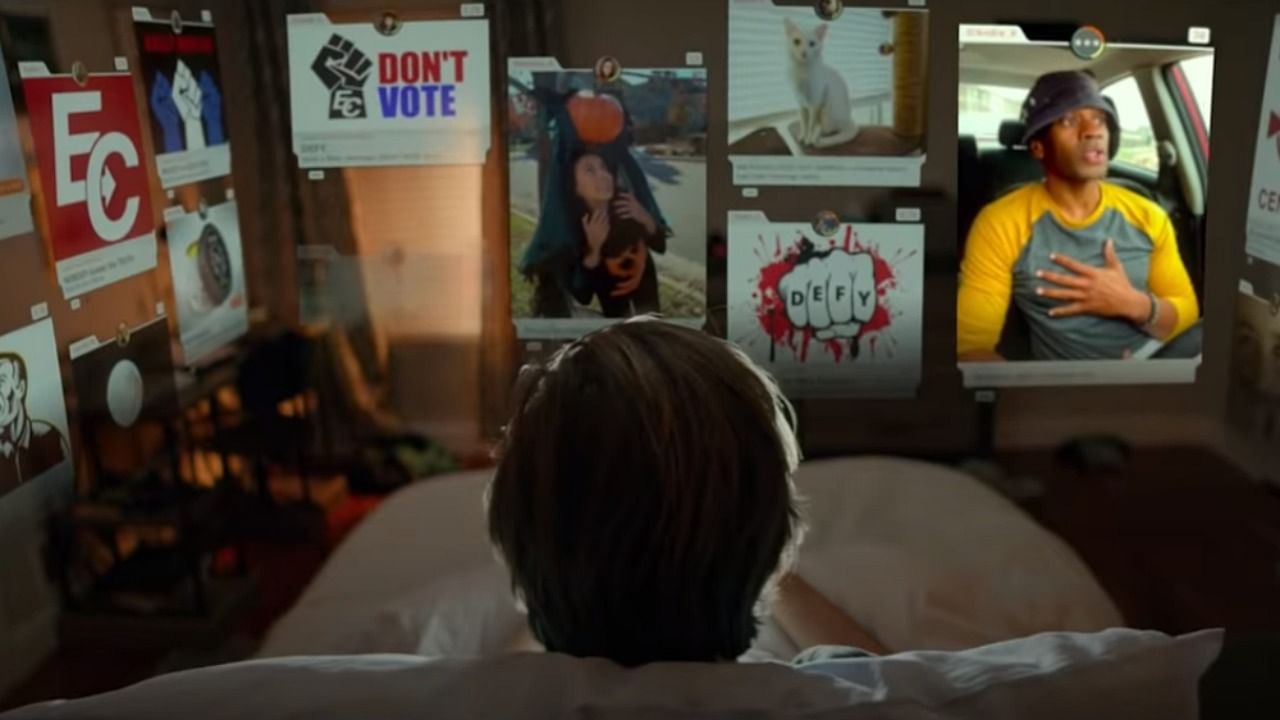
I remember the early days of Facebook's mainstream popularity, for it mingled with the twilight of Orkut in a most explosive way. Orkut, which had grown too big and too divided, was seeing a mass exodus with users migrating to Facebook, which appeared to many of us as a promised land that was simple in its goal and easy to use. Not long after, Twitter and Reddit happened, and for a time, many of us explored our creative sides freely and engaged with people the world over.
It all changed, however, when big data was born. Slowly but surely, a silent wall was built on those platforms. As they grew bigger, so did their need to get more users, more ads and most importantly, more data. What we see today on social media sites is chiefly a vast earth of data to be mined and monetised at will.
That is the dilemma of Netflix's The Social Dilemma, a hour-and-a-half-long documentary (with a bit of drama) that tries to piece together just how social media have gone out of control.
Featuring interviews from former engineers at Facebook, Twitter, Instagram and Google, along with the father of virtual reality, The Social Dilemma delves deep into what made social media and Big Tech tick during their early days, where many of the things they made were driven by the hopes of spreading positivity, and how they have changed into behemoths that are becoming like small governments unto themselves, complete with conflicts of interest, near-total power over their users and no real accountability.
Beyond the interviews, however, lie the news clips, the Senate dramas and a small dramatisation of the impact of social media that focuses on a small family. Through the eyes of this average, suburban family, we see the true horror of the current form of social media brought to light, in that the son, who is addicted to social media, finds himself in the wrong place, with consequences that would otherwise be unfathomable while one of the daughters is held to unrealistic standards of beauty because she literally cannot stop posting photos of herself.
Many of the speakers talk about radicalisation, compartmentalisation and a deranged version of the tunnel vision effect, wherein people only get to see information related to what they are already seeing; an effect that only serves to deepen their own biases, be it anti-vax, flat-earth, or most recently, any given number of hoaxes on Covid-19. To those who are in deep into these, what the sites show is fact, and any information to the contrary is either hidden away by the machines that determine what people see, or rejected outright when presented. To better explain this, the speakers present the problem of AI in science fiction, where in many cases, the machine grows too powerful and wipes out the human race. This, they say, is rather an exaggerated account, for AI already controls many, many things that we see and do online, most of which is beyond the understanding of not only the users, but also those who wrote the AI and taught it to learn and get better at its job.
Many of us think that the threats from big data and reported incidents of intrusion are anomalies in our lives and carry on with doing our thing on Facebook or Twitter. It is not so simple so as to be easily dismissed as such. Social media has become a bitter reflection of the world we live in, where people have been divided over things that range from food preferences to who they support politically. People who consume right-wing conspiracies exclusively are always driven only to those, and so is the case for everyone else - all at the expense of the people themselves, who have become commodities to be monetised and sold to whoever is willing to pay a little more than the price of a packet of peanuts per person. The result of this is a near-total erosion of empathy and a willingness to listen to another point of view or debate in a way that leads to mutual growth and understanding.
And while the documentary presents social media as the cause of the divide, which is simple enough to deduce, the root cause may be a combination of various failures on many fronts. The people themselves may be to be blame though the documentary makes a strong argument for the lack of regulation. Unlike entities like cellphone companies, social media remains, to this day, a beast without chains. This has allowed the behemoth to grow unchecked and untethered to the bounds of ethics, into something that resembles a deep mine or perhaps a rabbit hole, with the company heads holding the proverbial dials that decide when connection platforms morph into tunnels that simply tap into user information and siphon off money from them.
If you've read Alice in Wonderland, you will know that little Alice fell into a rabbit hole while chasing a rabbit. Down she went till she found herself in a strange land of wonder. Unfortunately, in the real world, this rabbit hole does not lead to a weird or amazing place. It goes as deep as we allow them to take us and this is what The Social Dilemma calls for: To put an end to a descent into anarchy and hopefully save ourselves from what comes next before it's too late.